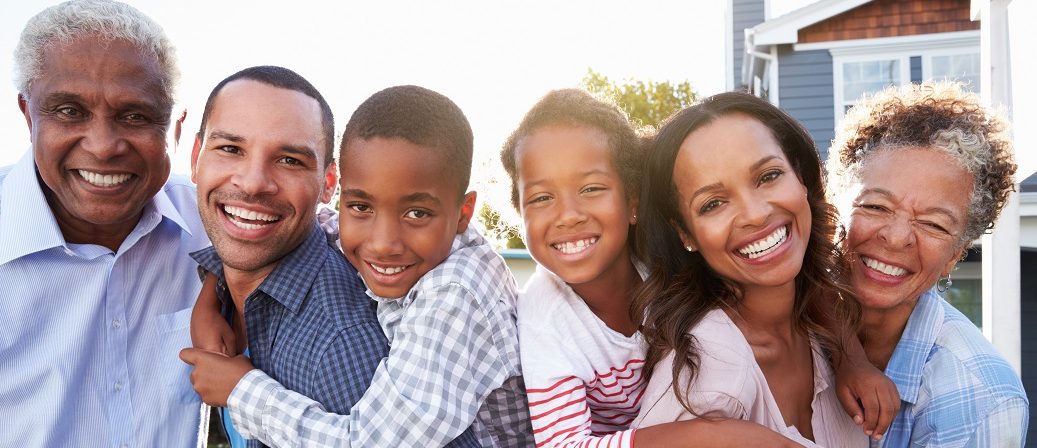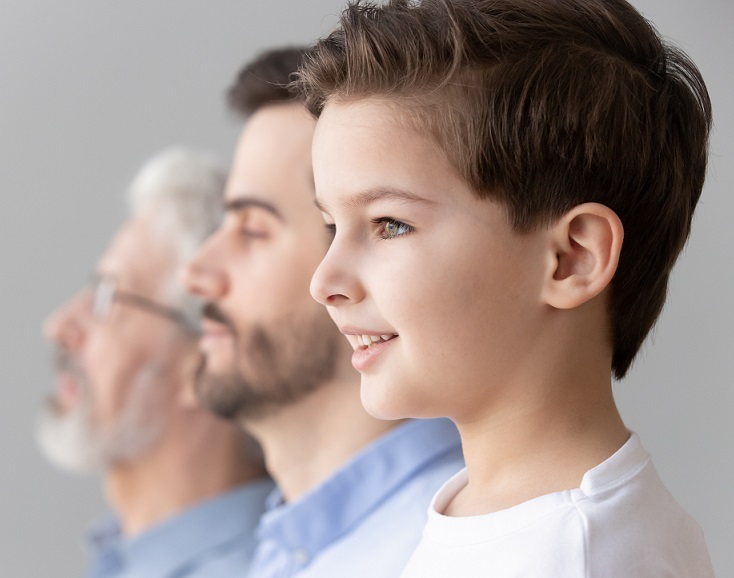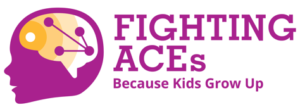
When inadequate parenting skills and toxic environments are passed down from parent to child, a cycle of hopelessness and helplessness can ensue. How can we address the deep needs of children and families embroiled in intergenerational trauma?
 A child’s mental health mirrors a family’s mental health. For the first years of life, up until he/she goes to school, a child experiences the world through their parents’ activities; their life is mostly home-based where they are surrounded by a small group of familiar caregivers. For most children, this leads to strong, healthy attachment with their parents and familial bonds that last a lifetime. Ideally, children are nurtured, supported, encouraged, and positively reinforced. They leave their home equipped to face the world and interact appropriately with peers, employers, and future romantic partners. This is the ideal scenario. Most of us experienced some disruption of this process, a degree of household dysfunction or unexpected change such as a divorce or the loss of a parent. Because positive buffers like a supportive relationship with the remaining parent were in place, we adapted, used our resilience to bounce back, and soldiered on successfully.
A child’s mental health mirrors a family’s mental health. For the first years of life, up until he/she goes to school, a child experiences the world through their parents’ activities; their life is mostly home-based where they are surrounded by a small group of familiar caregivers. For most children, this leads to strong, healthy attachment with their parents and familial bonds that last a lifetime. Ideally, children are nurtured, supported, encouraged, and positively reinforced. They leave their home equipped to face the world and interact appropriately with peers, employers, and future romantic partners. This is the ideal scenario. Most of us experienced some disruption of this process, a degree of household dysfunction or unexpected change such as a divorce or the loss of a parent. Because positive buffers like a supportive relationship with the remaining parent were in place, we adapted, used our resilience to bounce back, and soldiered on successfully.
However, for some households, the degree of dysfunction, abuse, and neglect is so extreme and relentless that it reaches traumatic levels, affecting the physical health and brain development of the young children who are surrounded by it. When these children grow up, if their Adverse Childhood Experiences (ACEs) remain unaddressed, they are vulnerable to repeating the patterns they learned in their own childhoods. They bring dysfunction into the lives of their children and so it continues. This is called the cycle of intergenerational trauma.
Intergenerational trauma isn’t just a pattern of behavior that’s learned and repeated. It’s a brain development issue. Some family members may exhibit a behavior called “learned helplessness”. A person with this condition accepts a feeling of powerlessness in the face of repeated and seemingly insurmountable adverse experiences. Eventually, the person may stop trying to improve their situation, even when positive alternatives are presented. Recent studies in neuroscience seem to indicate that the brain’s default setting is to assume lack of control and that it is the “helpfulness”, solution-seeking, and resilience that are actually learned.
Based on these scientific principles, all of Center for Child Counseling’s programs are trauma-informed and help to address deep-seated trauma through evidenced-based treatment approaches. However, one program is focused on using a distinctive, nationally-recognized approach: Child First. Child First, was developed in Connecticut by Darcy Lowell, MD and Palm Beach County was the first replication of the program out of the state. Funded by the Children’s Services Council of Palm Beach County, Child First works with our most vulnerable young children and their caregivers.
Clarissa DeWitt, Senior Clinical Director, describes intergenerational trauma as a situation where a portion of the population has experienced adversity going back for decades, to the point where the adversity is at a neurological level, affecting the development of young children’s growing brains and even influencing the expression of genes, which genes are “turned on” and which ones are “turned off”. “Going back through the family tree, we can see historical trauma being passed from adult to child until it’s literally embedded in their genetic makeup,” explains DeWitt.
The Child First program focuses on the needs of the child while also addressing how past trauma impacts the relationships between parents or caregivers and their children. “If we can get the parent to a place where they can understand their own story and how it has affected their choices and parenting style and move them towards being more present and adaptive parents to their children, we have intervened to stop the cycle. If each generation gets a little better,” says DeWitt. “We can alter the course of society’s future.”
The program uses a dyadic approach, working with BOTH caregiver and child in a relationship-based environment. Often, caregivers in these traumatized homes have never seen what a healthy parent-child relationship looks like, so the therapist models those behaviors for them to learn from and imitate. The parallel process, children learning and improving their behaviors while their caregivers learn better parenting skills, works to help both parties. Building strong parent-child bonds is crucial, especially during times of stress when children look to their parents for guidance and reassurance. The current Coronavirus pandemic will bring tremendous stress to already-taxed family situations and studies indicate that we can expect to see a rise in cases of domestic violence, substance abuse, and child neglect. Our children need your help to provide services for these kinds of deeply-rooted issues right now and in the days and weeks to come.
Child First is a part of the Healthy Beginnings System of Care, an entity created by the Palm Beach County taxpayers in the 1980s. Funding is distributed via the Children’s Services Council which has a mission of ensuring all children in Palm Beach County grow up free from abuse and neglect and in a developmentally appropriate manner. Those tax dollars go to programs like Child First to help very young children by changing the trajectory of their lives. Families referred for help go through a centralized intake process via Home Safe and Healthy Mothers Healthy Babies, then they are connected to services with the most appropriate agency for their needs. Center for Child Counseling’s Infant Mental Health Program is also a part of this system of care.
The work managed by Child First is not typical clinical work. On average, a family will stay with the program for a year; some need a year and a half or even two years to make progress. Two people are assigned to support the family: a clinician and a care coordinator. “When your family is steeped in current difficulties, it’s hard to think about processing your past trauma,” says DeWitt. “We focus on the idea of stabilizing the family and getting them to a more secure place in order to be ready to do the therapeutic work with the clinician. It’s a unique model requiring specially-qualified therapists with hands-on experience and a depth of understanding.”
Initially the Child First team meet with their client families twice a week. There is a lengthy two-month assessment period. “We don’t motivate to change things we don’t understand. We have to appreciate the dynamics of the family and understand why they embrace some suggestions and resist others.”
Because this deep therapeutic work is intense and time consuming, it requires the dedication of very special and specialized mental health professionals. Recently, Center for Child Counseling’s Child First program expanded, after absorbing the program serving southern Palm Beach County. Located in Lake Worth, Clinical Director Karen Haag brings years of experience to Center for Child Counseling. An additional four teams will double our organizational capacity to use this effective model.
Although intergenerational trauma is an enormous challenge, we can end on a hopeful note. The concept of the family unit has existed for as long as human beings have. It is the cornerstone of human survival, connection, and support. It has evolved over time. We now embrace all sorts of family units beyond the traditional nuclear family and research indicates that love beats all when it comes to raising healthy children. The joy of family should be celebrated. The benefits of keeping families connected is enormous. Within the nurturing care of multi-generational families, we learn so much. Who didn’t learn some skill, hobby, or good habit from their grandparents? For many, recalling times with multiple generations of family members are their most treasured memories. Let’s keep our families strong and cherish the irreplaceable lessons and the love they can give us when family relationships are working well.

Sign up now for news, events, and education about Adverse Childhood Experiences (ACEs) and promoting resilience.
By submitting this form, you are consenting to receive emails from: Center for Child Counseling, 8895 N. Military Trail, Palm Beach Gardens, FL, 33410. You can revoke your consent to receive emails at any time by using the SafeUnsubscribe® link, found at the bottom of every email.
